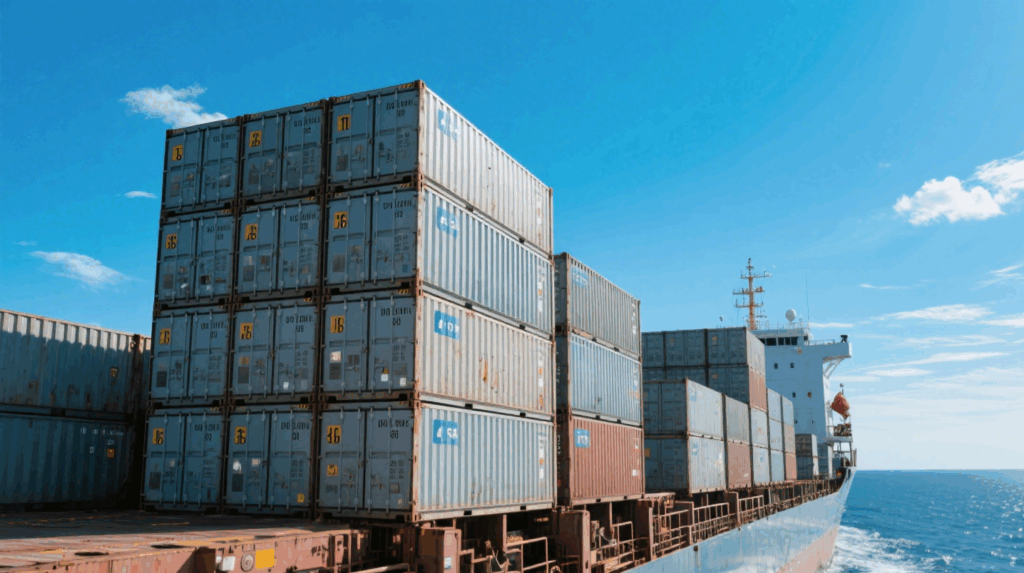China freight consolidation is one of the most effective ways for businesses—especially SMEs and e-commerce sellers—to save money on international shipping. Instead of paying for an entire container, smaller shipments from different suppliers are combined into one, reducing per-unit costs and improving efficiency. Partnering with the right china forwarding company ensures smooth coordination, customs clearance, and delivery.
What Is China Freight Consolidation?
China freight consolidation (also called LCL—Less than Container Load) is a service where forwarders combine shipments from multiple exporters into a single container.
| Feature | Description | Benefit |
|---|---|---|
| Shared Container | Multiple shippers’ goods in one container | Lower per-unit freight |
| Cost Allocation | Based on volume or weight | Fair cost sharing |
| Customs Handling | One consolidated bill of lading | Simplifies clearance |
| Flexibility | Smaller shipments allowed | Supports SMEs & e-commerce |
What Does Freight Consolidation Do?
- Reduces costs by sharing space among multiple exporters.
- Simplifies logistics through forwarder-managed collection, storage, and shipping.
- Improves flexibility for businesses without full-container volumes.
- Ensures customs efficiency with consolidated paperwork.
Top China Freight is one of the providers offering professional china freight consolidation services, especially for shipments from Shenzhen, Ningbo, and Shanghai.
Freight Consolidation Across Transport Modes
| Mode | Use Case | Transit Time |
|---|---|---|
| Sea Freight (LCL) | Ideal for SMEs with small shipments | 20–40 days |
| Air Consolidation | High-value, urgent small parcels | 3–7 days |
| Rail Freight (EU only) | Medium-cost, consolidated pallets | 15–20 days |
| Courier/Express | Micro shipments consolidated via hubs | 3–10 days |

Terms and Conditions in Consolidated Freight
Freight consolidation relies heavily on Incoterms 2020:
- EXW (Ex Works): Seller makes goods available, buyer arranges consolidation.
- FOB (Free On Board): Forwarder collects goods at port for consolidation.
- DDP (Delivered Duty Paid): Forwarder manages consolidation + delivery with duties included.
Choosing the right Incoterm ensures clarity on responsibilities.
Performance in Different Destinations
How to Avoid Problems in Freight Consolidation
- Hidden costs → Request clear breakdown of LCL charges.
- Damage risks → Use strong packaging, as LCL involves multiple handlers.
- Customs delays → Provide accurate invoices and HS codes.
- Misrouting → Work with experienced forwarders who know correct trade lanes.
Quote from freight specialist:
“Over 40% of LCL shipping problems occur due to poor packing or missing paperwork.”
Real-World Case Studies
Case 1: Electronics to UK (Air Consolidation)
- Cargo: 500 smartphones + 200 tablets, total 800kg
- Mode: Air freight consolidation via London Heathrow
- Cost: $5.0/kg × 800kg = $4,000
- Outcome: Arrived in 5 days, avoiding express courier costs of $6,500.
Case 2: Industrial Spare Parts to Ghana
- Cargo: 5 suppliers’ parts, total 10 tons
- Mode: Sea freight consolidation to Tema port
- Cost: $9,200 including duties
- Outcome: Forwarder arranged bonded trucking, avoiding 2-week port delay.
Conclusion
China freight consolidation is an ideal solution for businesses with smaller shipments, enabling them to enjoy lower costs, simplified logistics, and faster market entry. From LCL sea freight to air consolidation, forwarders ensure goods move efficiently across borders. Partnering with providers like Top China Freight guarantees transparent pricing and reliable global delivery.
- Consult TJ China Freight Forwarding for the lowest quote. They will provide you with reliable, cost-effective service.
FAQ:
Q1.What is the biggest benefit of china freight consolidation?
Lower per-unit costs and flexible shipping options.
Q2.How does LCL differ from FCL?
LCL shares container space, while FCL reserves the entire container.
Q3.Can consolidation be used for air freight?
Yes, forwarders combine shipments into bulk air cargo.
Q4.Which businesses use consolidation most?
SMEs, e-commerce sellers, and seasonal exporters.
Q5.How do I ensure my goods are safe in LCL?
Use reinforced packaging and marine insurance.

